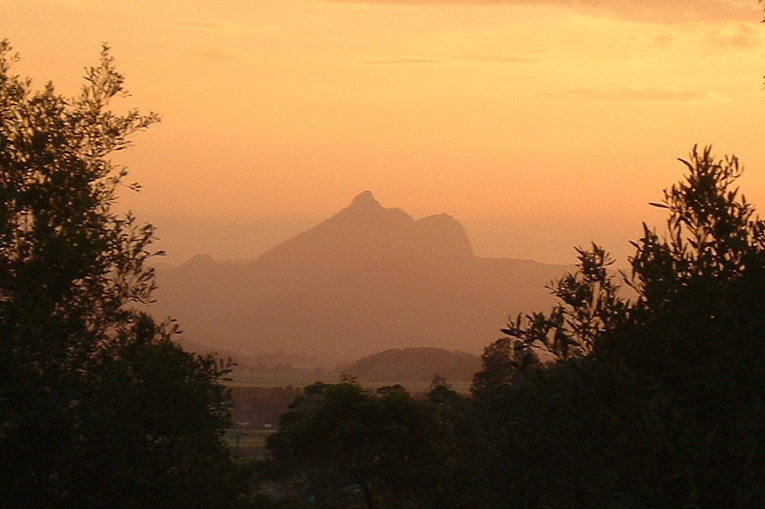Ella Noah Bancroft is a descendant of the peoples of the Bundjalung nation (in present-day Australia) and has bloodlines to England, Poland and Scotland. She is an Indigenous artist, storyteller, mentor and active advocate for The Decolonization movement. She is the founder of the not-for-profit event The Returning, which works to reconnect people back to self, community and the land. In her writing and other work she promotes re-wilding and the rise of the female energy as a way back to deep relationship with nature, and towards decolonizing personal, social and ecological well-being. Local Futures Project Coordinator Henry Coleman spoke with her in connection with the launch of our Localization Action Guide.
HC: Ella, thank you so much for being part of the Action Guide launch, and for all of your work towards localization. Before we dive into questions of hands-on actions for change, can you frame the context for us? Where do you see the world now?
ENB: I witness this current time, 2021, as a blessing. A time when the world has stopped, when we have realised that global food systems and global distribution is not sustainable, when the land is calling out for protectors and when we have an opportunity for real system change. In 2019 everyone was talking about System change… well, this pandemic could be the very thing we need for a system change.
I am making everyday decisions to bring myself closer to connection and further from the system and hope to encourage others to do the same.
HC: In your opinion, why do we need to focus on going local?
ENB: Going local is remembering the old ways, the ways in which all our ancestors used to live. Going local is about reconnecting to place, people and self. It is the ultimate reconnection our planet is calling for. A slower pace and more gentle way of being on this planet.
HC: How do hands-on actions towards localization contribute to this shift? How can small-scale, community-based efforts contribute to systemic decolonization?
ENB: Many hands make light work and anyone who has ever built a garden, house or raised a child will know this phrase to be true. When many of us come together in community to create change, change happens. I was always told by my mother that grassroots organizations make the most change. It’s time to rise from the bottom up. To collectively remember the power we have when people unite and be strong in knowing that any small step towards community building, securing food systems, cleaning waterways will be huge to stepping away from the system and therefore ultimately decolonizing.
HC: Of the 146 actions described in the guide, which ones stand out as particularly important or inspiring? Why?
ENB: It’s hard to choose, but here’s my list:
- Join or start a community garden
- Learn how to grow organic food
- Link land and landowners with aspiring farmers
- Harvest wild foods
- Barter what you have for what you need
- Practice simple living
- Shop at locally owned businesses
- Reconnect to end loneliness and build community
Why? Because this is my lived experience of what works, for me, for my health, for my community, for the land and for the future generations to come.
HC: As people undertake any of the actions described in the guide, is there anything you would ask them to keep in mind?
ENB: Ask yourself in every choice you make: is this bringing me closer to connection or disconnection?
HC: One of the worst products of the global/industrial way of life is the climate crisis. In your opinion, why is shortening distances between producer and consumer an essential pillar of genuine climate action?
ENB: The most essential pillar is not new technology, it’s nature. It’s the trees in the ground, the mycelium in the soil, the seaweed in the sea and the slowing down of humans. We cannot continue to run this machine – we’re running out of resources. Plant trees, clean waterways and rebuild soil. Nature has all the answers, we just have to stop and listen to her.
HC: What is your conception of ‘the feminine’, and why is it at the center of the systemic change we need?
ENB: The feminine holds wisdom, is the original healer, teacher, wisdom keeper.
When we return women to their rightful positions in society, when we start honouring and supporting mothers, when we start listening to our elder women, then we can start to see real change.
We need women-centered care societies.
HC: Thank you so much Ella. I’m sure your words will ring true with many of our readers.
To explore the Localization Action Guide, visit: https://actionguide.localfutures.org/
Teaser photo credit: Wollumbin is the mountain range to the north of Mt Warning, his face and form can be seen in the ranges profile, when viewed from the north, near Chinderah on traditional Bundjalung land. By http://en.wikipedia.org/wiki/User:Seandigger – http://en.wikipedia.org/wiki/Mount_Warning, CC BY-SA 3.0, https://commons.wikimedia.org/w/index.php?curid=13246955





